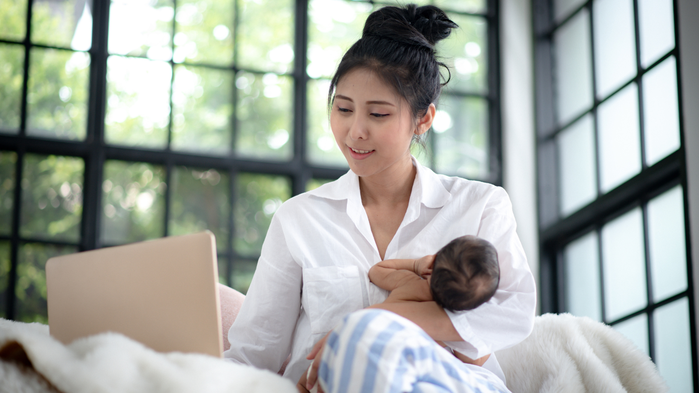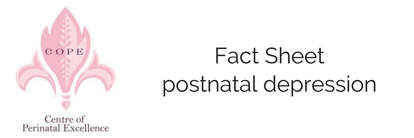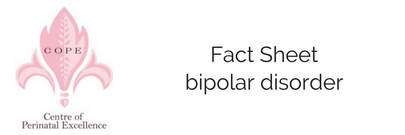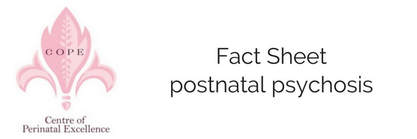postnatal period
Having a baby is a major life event that involves dramatic changes - changes to daily routines, sleep patterns, roles, relationships, and self-identities. The new responsibilities and demands of parenthood can be overwhelming for some people. In some cases, parents can feel so fearful of harm befalling their babies, that they experience obsessive fears or intrusive thoughts (often disturbing and associated with shame). Although most new parents experience fleeting intrusive thoughts about their babies' safety, some people find these thoughts intolerable, question themselves, and even avoid caring for their babies alone. Some new parents find themselves performing compulsive behaviours. These symptoms are not uncommon, and are treatable.
The transition to parenthood is challenging, whereby previously effective ways of operating and organising one's life can feel redundant. This transition can also be difficult when there has been an experience of a traumatic birth, when there are other life pressures (including financial pressure, feeding difficulties, a very unsettled infant, social isolation, ill health, relationship and family difficulties), and lack of supports. The birth of a baby can trigger unresolved issues from the past, and can be a time when new parents fear repeating parenting patterns from their own families of origin. Some new parents feel overwhelmed with disappointment and unmet expectations about the gender of their baby (gender disappointment) - often feeling embarrassed to speak about these feelings, thereby carrying the burden of shame or fears of not being able to love their baby.
New parents can find themselves comparing the development of their babies to other babies, and searching for the "right" approach to any number of parenting matters (e.g. feeding, sleeping, settling, stimulating, etc.). This can contribute to feelings of inadequacy and self-doubt, and can leave parents feeling distressed, and in some cases, worthless.
Just as every baby is different, every new parents' experience is different, and can range from transient stress to more prolonged stress or more serious mood or anxiety disorders (for both women and men). Various stages in the first few years of parenting can trigger emotional distress (e.g. weaning, returning to work, toddler tantrums, adjusting to childcare, etc). Our psychologists are trained in identifying emotional disturbances in pregnancy, following birth, and in the early parenting years. Our psychologists can help women and couples determine if what they are feeling is 'normal' or whether there is a more serious emotional disturbance such as postnatal depression and/or anxiety. For some women, where medication and/or admittance into a parent-infant unit is necessary, the psychologist works closely with GPs and relevant perinatal psychiatrists in order to provide the most supportive care possible.
It is important to note that counselling support is also available for partners (irrespective of the birthing person's mental health). For the primary breadwinner, the transition to parenthood can involve the added stress and pressure of having to earn money for the family. This often new responsibility can be overwhelming for some partners, and can be particularly stressful when work is slow, or when there is a threat to one's job.
The addition of a child changes relationships. Conflicting expectations, or assumptions made by partners or family members can bring about unexpected conflict or resentment (among many other feelings that can arise). Similarly, pre-existing difficulties within relationships can be exacerbated when a baby arrives. Some of our psychologists provide couple's therapy (in the context of adjustment to parenthood and parenting) or family therapy, or when required, refer couples or families to relevant therapists in their general location.
Postnatal psychosis (a note to family members)
A rare but severe complication of the postnatal period is postpartum psychosis. If a partner or family member notices a significant, disturbing change in the new mother, medical help should be sought immediately. If a birthing parent's mental health appears to be deteriorating rapidly, be aware that this is a psychiatric emergency. If the new parent seems to be losing touch with reality and behaving in uncharacteristic ways, they may be developing postnatal psychosis which has a rapid onset, and needs to be assessed immediately. Postnatal psychosis is a rare condition that can result in harm to the birthing parent or infant. Immediate medical help and hospital admission is required. To know more about postnatal psychosis, visit Centre of Perinatal Excellence (COPE).
An important distinction between postpartum psychosis and intrusive thoughts is that intrusive thoughts are disturbing to the mother and psychotic thoughts are believed to be true.






